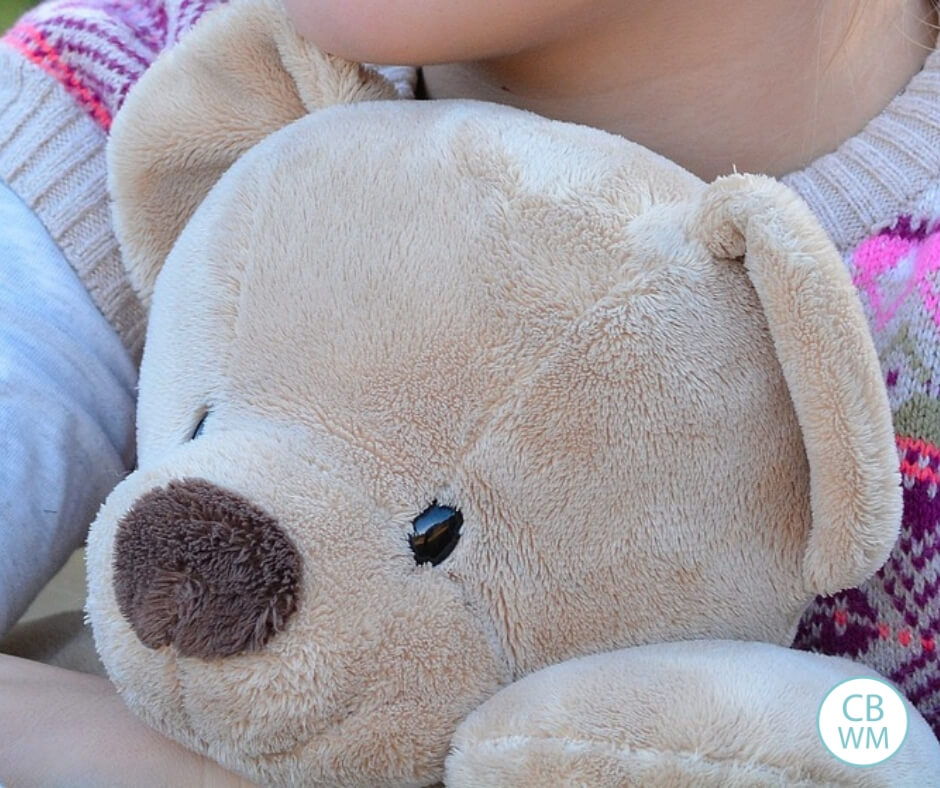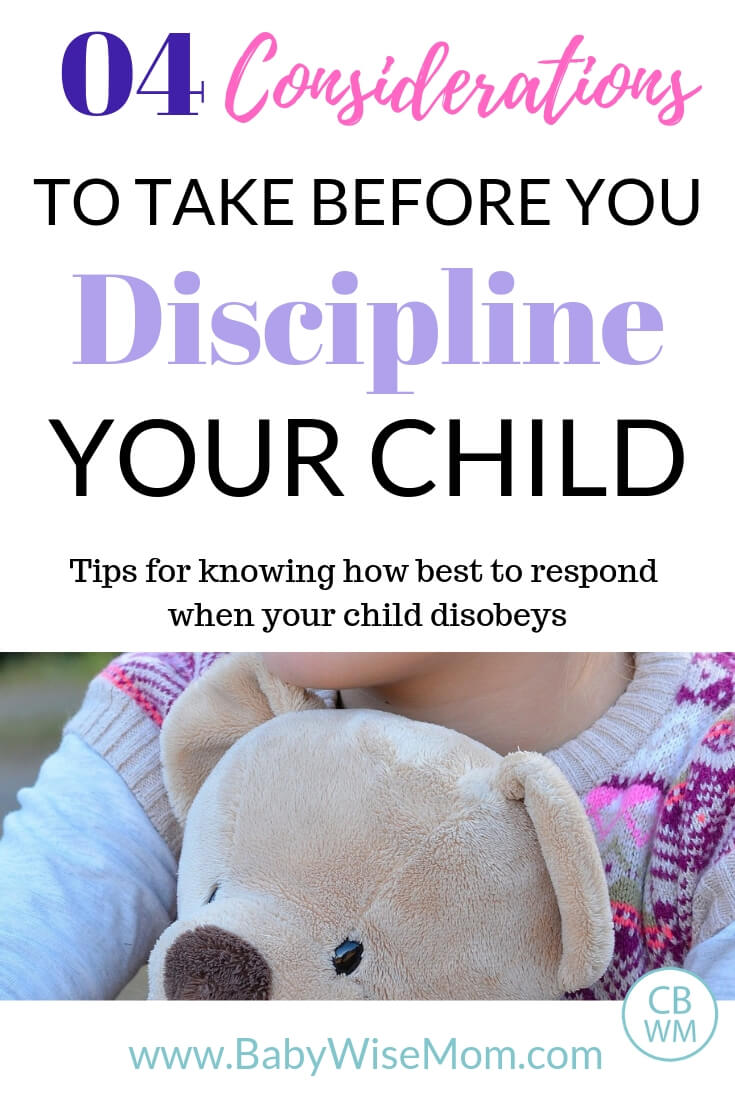Things to consider when you are correcting your little one. Discipline tips for toddlers, preschoolers, and children. Think before you act.

On Becoming Babywise II lists four considerations you should take into account before deciding which method of correction to use (page 87). They are:
- How common is this particular offense?
- What is the context of the situation?
- What is the child’s age?
- How is the child’s overall behavior?
Your answers to these questions will help guide you to an appropriate action when your child does something he shouldn’t. Let’s examine each of these a little more closely.
Post Contents
Considerations When Correcting Children
How common is this particular offense?
Is this the first time your child has grabbed the plant leaves, or is this something he has done several times in the past? If it is a first-time offense, often verbal correction and redirection are all that is needed. If your child is repeatedly doing something you have instructed him not to do, then it is time to evaluate your methods of correction and look into something new.
Read: Distraction as a Discipline Tool
Your child will likely test your consistency every so often. He might know the plant is off limits. He hasn’t even looked at it in over a month. But he wonders, is the plant still off limits? So he tries it again. This situation might require nothing more than a verbal reminder. It might also require something more, like isolation. But it shouldn’t require as much as when he is repeatedly doing something he shouldn’t, unless it leads to that.
What is the context of the situation?
Take circumstances into consideration. Is your child overly tired? Did he get to bed late or have a shorter than usual nap? Is it almost lunch time? Is he teething or sick? These are factors to consider before reacting. These aren’t excuses for being disobedient, but they also tell you that your child really can’t be expected to behave like he usually does.
There are other factors when it comes to context. Perhaps your child is overstimulated. Perhaps you aren’t giving him the attention you usually do. Read more in my post Overstimulation for Toddlers.
I remember one day when Brayden was 13 or 14 months old. We had just moved into our house and two neighbors stopped by to visit and welcome me. At the time they came, Brayden was between his bath and independent playtime. I had the visitors come sit down and we visited.

In retrospect, I knew that I should have excused myself for a few minutes to get him started in independent playtime, or at least directed him to a free playtime activity. That isn’t always possible. When your child disobeys but you can see a clear, understandable reason for it, consider the situation before disciplining.
The two women visiting are both older with grown children close to my own age. They chuckled knowingly and mentioned that he knew how to get Mom’s attention. They were correct; he was trying to get my attention. He knew that touching that pottery would get my attention and a reaction immediately. He hadn’t touched it in months upon months.
In this situation, Brayden was at a point in his day when he usually would have been in independent playtime. Instead, I had him out wandering around wondering what to do with himself. He did his best to get my attention.
This act was not something he received any sort of punishment for. I told him that is a no and put the pottery up out of his reach. He hasn’t touched it again to this day (now approaching four years old).
This is an important factor that can really contribute to helping you figure out what to do. Was this a one-time incident? If so, what was the context that led to it? In my pottery example, it was an isolated incident. There were many factors at play. I did not need to look any deeper.
What is the child’s age?
Your child’s age has a lot to do with how you should respond. As your child gets older, he has had more training and knows better what to do. So while 14 month old Brayden got nothing more than “That’s a no” for grabbing the pottery and running, 4 year old Brayden would receive more than that in that situation. He would likely lose a privilege of some sort. We would also have a discussion about his behavior, what he should have done differently, and what he should do in the future.

How is the child’s overall behavior?
If your child is disobeying often, you need to look deeper. Is he getting enough sleep? Adequate nutrition? Does he have too many freedoms? Is he addicted to making his own decisions? What is the real root of the problem?
When your child is in need of correction, run through these factors before you react and move forward with correction. By doing so, you can apply the appropriate method of correction so that your child can learn and move forward.
Related Discipline Posts:
- Adjusting for Context
- Discipline Methods: 10 Months and up
- Proactive and Directive Parenting
- Moral Training: Start Early
- How To Know What Freedoms to Give Baby
- Discipline: Progress is a Spiral
- Discipline Strategy: Surrender with Dignity
- Why Prevention is a Powerful Parenting Tool
- The Choice Addiction (for Toddlers)
- Tips for Avoiding and Responding to Tantrums
- Teaching You Baby No
